Overseas Case:Korea Institute of Human Resources Development in Science and Technology(Korea)
Developing Human Resources in Science and Technology, through the Realization of 100 Competencies at KIRD
The Korea Institute of Human Resources Development in Science and Technology (KIRD) is Koreas leading institute for enhancing the professional competency of researchers in the science and technology sector. KIRD’s core target is researchers at Korea’s public research institutes, but it also offers several courses and programs focused on supporting the career development of young researchers both inside and outside of these institutes. KIRD’s curriculum is based around 100 competencies developed nationally for Korea’s public researchers, with KIRD directly providing training that covers 65% of these competencies, often through courses combining several relevant competencies based on specific career paths or levels. KIRD supports researchers in their individual career paths and implements surveys to ensure training is based on researcher demand.
We asked the staff in charge of these programs to tell us more about researcher development at KIRD.
Abstract
KIRD, stands for the Korea Institute of Human Resources Development in Science and Technology. Pronounced “Ki-R-D,” representing its aim to serve as the key to research and development in Korea, the institute was established in 2007 to enhance efficiency within the nation’s R&D investments by improving the professional capacities of those in the science and technology sectors. KIRD’s core target is researchers at public research institutes, who are considered to be key players within Korea’s National R&D programs. KIRD also provides training aimed specifically at young scientists at the start of their careers, which makes up around 20% of their courses in total.
Interviewee’s Bio
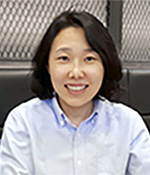
Ms. Eunjung, Ko, Senior Director, HR Development Office
Ms. Ko is the head of the HR Development office.
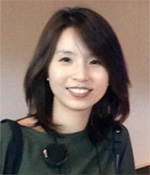
Ms. Kyoungae, Lee, Director, HR Network Division
As the director of the HR Network Division, Ms. Lee Oversees the work of the division.
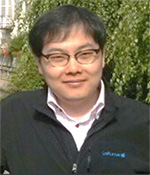
Mr. Kyudong, Kim, Director, HR Education General Division
As Director of the Education General Division, Mr. Kim oversees the work of the division. He is also responsible for the newcomer program at KIRD.
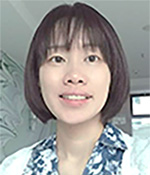
Ms. BoKyung, Kim, Associate Research Fellow, HR
Development Project Management Division
Ms. Kim is responsible for strengthening R&D competencies and planning and operating mentoring programs. She is also in charge of professional development programs for graduate students.
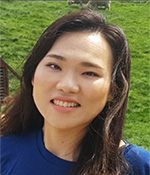
Ms. Eyunna, Lee, Associate Research Fellow, HR Network Division
As a member of the HR Network Division, Ms. Lee is responsible for international Cooperation, including KIRDs international cooperation master plan.
History of KIRD
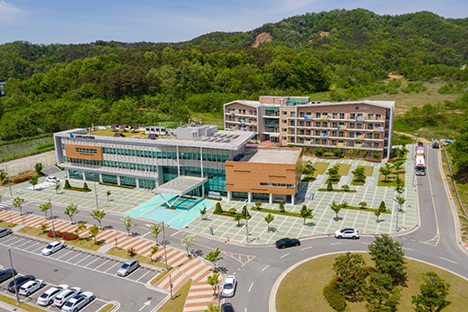
KIRD Facility in Chungcheongbuk-do, Republic of Korea. A second institute is located in Sejong, Republic of Korea.
In 2007, the Korean government was putting a strong emphasis on the development of science and technology. The most important resources to realize this are human resources, so KIRD was established to train public researchers, who play a vital role in both the national R&D program, and the results of R&D investment. KIRD receives government funding of 27 billion South Korean Won to conduct survey research, consulting, and programs to promote evidence-based practice, and also trains other government funded science and engineering institutes in Korea. In 2020, KIRD redeveloped its Scientist Development Framework (SDF) curriculum, which focused on knowledge, behavior and attitudes to human resources in science and technology, moving from a core emphasis on empathetic factors that help scientists write about and promote their research results, to a focus on digital literacy, which has become critical during and after the COVID-19 pandemic. With this, KIRD’s current model of 100 competencies was created.
Education at KIRD – 100 competencies.
Training offered at KIRD is based on the principle of 100 core competencies developed nationally for Korean R&D researchers. The initial 95 competencies were developed by KIRD’s HR Education General Division, under the supervision of Mr. WooHo Shin, and were extracted from the science and technology fields with reference to frameworks such as the Vitae Researcher Development Framework (RDF). Last year, an additional five competencies were selected through focus group interviews with 20 experts, specifically five experts from each of the four categories of researcher, administrator, manager and HRD specialist. The results were evaluated using the Delphi method and Content Validity Ratio (CVR) analysis, and the competencies were expanded to their current total of 100. The competencies cover key research skills, and are split into 11 common competencies, 73 R&D competencies (further split into 10 basic capacities and 63 specialized capacities), and 16 leadership competencies. For R&D professional development in particular, the competencies are then further divided to factor in career levels, job positions and career paths, and include subcategories for researcher, research administrator, and research manager. The purpose of the competencies is to nurture and support scientists and engineers and equip them with the capacity to respond to future change. Across the 100 competencies, KIRD’s development programs cover a total of 65%, with the remaining 35% covered by personal educational training and other government-funded institutes. All career researchers that receive training at KIRD are provided with basic competency for conducting R&D, including an overview of the national R&D program, and courses on how to plan, conduct, and disseminate the results of R&D activities they participate in. This is a core focus at KIRD, as often master and doctorate degree students are not taught these skills at university during their degrees.
Training offered at KIRD includes both short and longer term programs, which are generally taken one at a time, depending on course content. For young researchers and first step students, the institute provides several types of programs ranging from one to two hours courses to five -month courses of weekly or biweekly sessions. Programs are offered both in person and online, with around 25,000 participants estimated to have completed offline programs, and over 300,000 people having participated in KIRD’s online courses. While there are many lecture-based programs, most programs also consist of team projects or mentoring. Outside experts are also invited to provide lectures, and courses will often include self-learning aspects led by the researcher themselves, undertaken together with their teammates, facilitators and mentors. One example, a longer-term self-motivated program named the “Learning Lab” tackles problems in wider society, with a focus on solving these through science and engineering. In this course groups of scientists and engineers are tasked with finding an issue, often from within their own research or environment, and then coming up with their own solution.
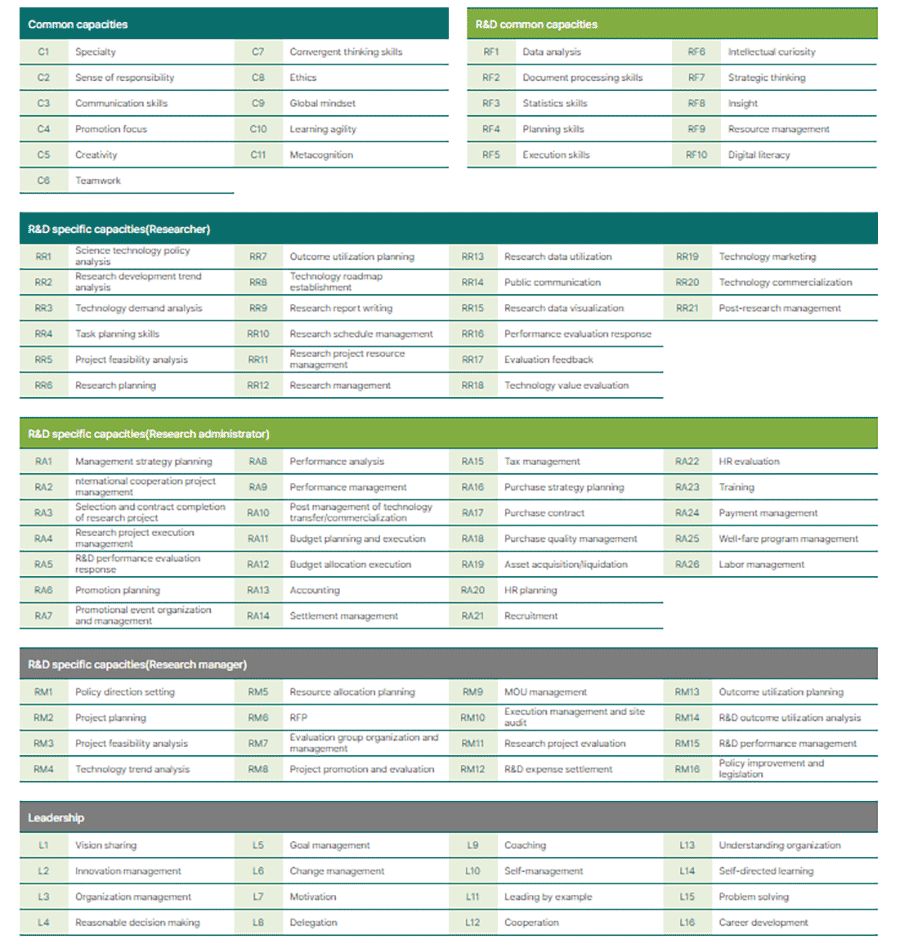 KIRD’s Handbook of 100 Competencies
KIRD’s Handbook of 100 Competencies
KIRD’s focus on Career Development for young researchers
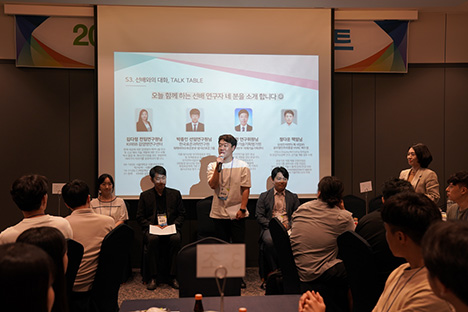
KIRD’s “Career Concert Program”
While KIRD’s core target is public researchers, it’s offering also focuses on young researchers, who are likely to participate in national R&D projects later on after graduating from their university, and have the potential to play a great role in national R&D programs. For this reason, KIRD also offers courses aimed specifically at newcomers to government funded research institutes, which are held up to five times per year. This newcomer program, mainly delivered by outside lecturers, targets employees with under one year of experience in public institutes and government-funded institutes under the Ministry of Science and ICT in Korea, and covers the roles of scientists and engineers, the role of government-funded institutes and the national R&D system, while reinforcing the importance of communication, teamwork, adaptation, and national regulations relating to science and technology.
For graduate students and post-doctoral researchers, KIRD supports career development though its “Self-career design” course and provides R&D competency mentoring programs to develop professional research skills and help solve individual research concerns such as working papers, use of research tools or data analyses. KIRD also provides a basic course for post-doctorate researchers who are considering working at government-funded research institutions, where young researchers can plan how to establish their careers by studying the example of their senior researchers who have already entered positions in industry, research, or academia. While many post-doctoral researchers usually limit their career to a research institution or faculty, KIRD’s basic course for post-doctoral researchers provides examples of various research careers at institutions including those outside of R&D, to allow post-doctoral researchers to broaden their point of view and understanding of the fields they can work in. KIRD also asks for permission and support from post-doctorate researchers’ principal investigators to help increase and sustain their motivation.
Beyond the graduate and postgraduate levels, KIRD’s curriculum is divided into different career paths and levels within science and technology, ranging from scientists and engineers at the working level, to management and leaders, even to leadership and the heads of research institutes. The 16 leadership competencies include business sharing, innovation management, and global mindset, and cover various aspects of managing a team, including vision sharing, objective management, coaching, understanding a team, decision making, and motivation. There are also competencies that cover the transition to leadership, including career development and also change management.

K-club Career Development Platform
KIRD also offers courses that support a researcher’s individual development plan and recruits various senior scientists and alumni in various positions and sectors. to present their careers and help researchers make their own career plan. As each researcher has their own individual research and results, their career path is also individual, and they are often concerned about which competencies to choose. These courses also include how to plan for recent developments to scientific career paths. “K-Club,” KIRD’s online learning platform for researcher career development provides a competency diagnosis system where master, doctoral or post-doctoral researchers can diagnose their competency at each stage or level. Based on this result, they can supplement their individual development planning, and KIRD can recommend courses to improve competencies as necessary.
Impact on young researchers

KIRD’s Real Challenge Program Implemented via Metaverse
Only 49% of Universities in Korea have a dedicated organization to run development programs, and these are not always available to post-doctoral students and researchers. Therefore KIRD aims to provide organic support and a positive impact for young scientists through its training. The institute’s programs are highly popular among young researchers. Basic courses aimed at public research institutes such as the 5-day course for newcomers are especially popular, and while some of KIRD’s courses, such as its research ethics program, are mandatory for researchers at government funded institutions, others are popular among graduate and post-doctoral researchers as way to gain the skills needed to obtain a post-doctorate or funding, or a chance to participate in certain research projects. For example KIRD’s popular “Real Challenge” course helps researchers learn how to write group research proposals and provides other professional development guidance on how to create research figures or write research papers, helping participants with the skills they need to secure the funds for their research. KIRD’s professional development course is open to 30 students, but frequently receives over a hundred applicants, proving how well known the programs are among university professors. Many students apply based on the recommendation of their professors, who KIRD keep informed regarding the courses available. KIRD also keeps in contact with researchers to get an idea of how their careers are progressing and how the content learned in the institute’s courses has been applied in their research. Some individuals who have found their career through KIRD’s programs return as guest lecturers to introduce their career path to less experienced researchers.
Future of KIRD
KIRD is currently in the process of developing case studies and data-based methods to analyze the impact of their programs. The institute aims to improve its programs every year, so carries out a yearly satisfaction and demand survey, which is used to implement improvements and consider new courses. This demand survey also focuses on courses which are not currently offered by KIRD or at universities, and this information is then used to create a hierarchy of demand. If KIRD measures particularly high demand for a course that is not currently offered, then this can be implemented within as little as one year.
KIRD is implementing new courses and study methods in line with future demand, and implementing overseas study programs and benchmarking initiatives, including programs to Japan and Germany, not only to research local development in science and technology, but to study local governments and the systems of government funded research and institutes overseas. It also offers a “Science & Technology Diplomatic Academy” focusing on fostering cross-cultural collaboration and understanding. KIRD is looking to implement a networking program in future where researchers can meet and communicate, and a career development center for post-doctoral researchers similar to those already present in the USA and Europe. This idea is currently being implemented at the research and funding stage.
KIRD’s training programs are also steadily transforming towards more informal learning. Lecture based courses are not always popular among researchers, and therefore KIRD is focusing on team-learning projects. Often researchers from different research institutions will gather together to develop their capabilities, forming communities around topics such as AI. KIRD hopes to nurture this community-based learning and other changes in the future. Towards the utilization of AI and digital transformation, KIRD provides seminars and courses focused on methods to efficiently utilize AI in scientific writing and research while remaining aware of the risks of false information. These are not only provided to young researchers, but to all researchers, to benefit research as a whole moving forward.
Interview date: August 2023
Interview cooperation: Urban Connections
